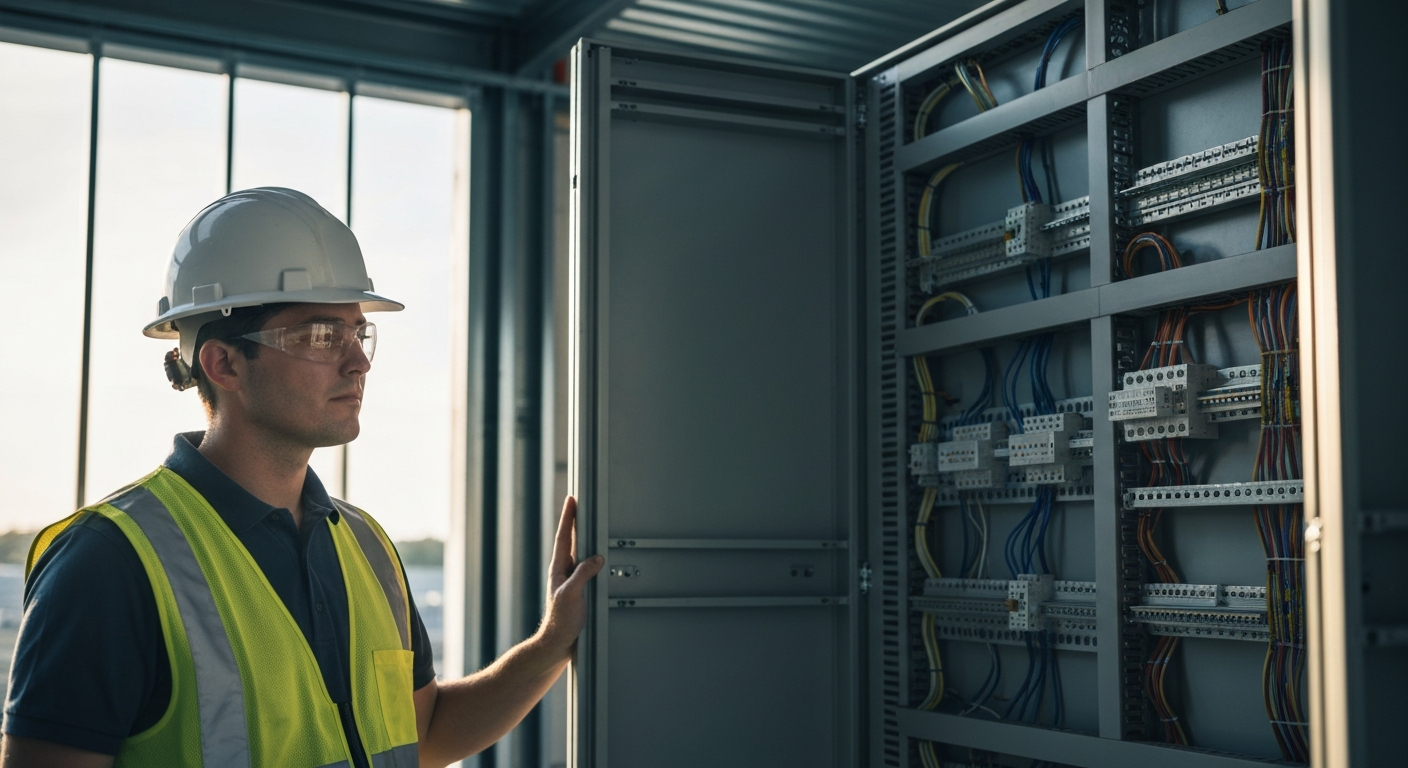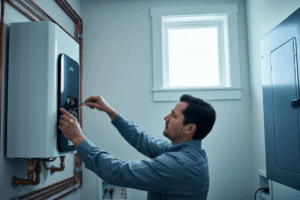
Washington Electrical License Reciprocity with Oregon & Idaho
Unlocking Your Career: A Guide to Washington Electrical License Reciprocity
The Pacific Northwest is a hotbed of opportunity. From Seattle’s booming tech construction to burgeoning developments across the region, skilled electricians are in higher demand than ever. If you’re a licensed electrician in a neighboring state, you might be looking at Washington and wondering, “How can I take my license and my career across state lines?” The answer lies in a powerful, but often misunderstood, concept: electrical license reciprocity. This process can be your ticket to expanding your work territory without having to go back to square one. Understanding the specific agreements—or lack thereof—is crucial for any journey-level electrician or master electrician looking to make a strategic career move. This guide will break down the specifics of Washington electrical license reciprocity, focusing on Oregon and Idaho, and what it means for your professional journey.
What is Electrician License Reciprocity and Why Does It Matter?
In the United States, electrician licensing is handled at the state level, creating a patchwork of different requirements. This can be a major hurdle for professionals who want to work in multiple states. An electrician license reciprocity agreement is a formal arrangement between two states that allows an electrician licensed in one state to obtain a license in the other without having to retake the full licensing exam. It’s a recognition that the training, experience, and testing standards are substantially similar. This concept of electrical license reciprocity by state is a game-changer, saving you time, money, and the headache of re-testing on knowledge you’ve already proven. For an electrical contractor, it can open up entirely new markets. For an individual electrician, it means greater career mobility and earning potential. The key is understanding that a reciprocity electrical license isn’t automatic; you must still apply and meet specific criteria.
Oregon Electrical License Reciprocity for Washington: A Clear Pathway
Washington has a well-established and direct reciprocal agreement with its neighbor to the south, Oregon. This is the most straightforward path for an out-of-state electrician license transfer to Washington. The agreement is managed by the Washington State Department of Labor & Industries (L&I) and primarily applies to the General Journey Level Electrician (01) license.
To qualify for Oregon electrical license reciprocity for Washington, an Oregon-licensed electrician generally must meet the following criteria:
- Hold an active Oregon General Journeyman Electrician (J) license in good standing.
- Have obtained that license by passing the Oregon state exam.
- Have completed an approved 8,000-hour apprenticeship program which included at least 576 hours of classroom instruction.
While the reciprocal agreement does not directly apply to Oregon’s General Supervising Electrician (S) license, holding this license is a significant advantage. Oregon S license holders may apply for Washington’s Electrical Administrator certification but must still pass the Washington administrator exam and meet experience requirements per RCW 19.28.191. It is important to note that the Electrical Administrator certification is distinct from a Master Electrician license; an administrator ensures compliance with laws and rules but cannot perform electrical work as an installer unless they also hold an electrician certificate. If you meet these conditions, you can apply to L&I for a Washington certificate without sitting for the Washington exam. This agreement acknowledges that the electrical apprenticeship requirements and testing standards in Oregon are equivalent to Washington’s, streamlining the path to earning your Washington certificate of competency.
The Path Forward: Idaho Electrical License Reciprocity
Regarding Idaho electrical license reciprocity, the situation is clear: Washington does not have a formal reciprocity agreement with Idaho. The official policy from the Washington State Department of Labor & Industries (L&I) confirms that its only exam-waiving reciprocal agreement for journey-level electricians is with Oregon.
So, what does this mean for an experienced electrician from Idaho? It doesn’t mean the door is closed, but the process is different. Instead of a direct reciprocity application, an Idaho electrician would need to apply to take the Washington (01) general journey level electrician exam. However, your years of experience and training in Idaho are still valuable. You will need to provide L&I with documented proof of your experience to demonstrate that you meet the qualifications to sit for the exam, which are:
- 8,000 hours of documented work experience in the electrical trade.
- Of those 8,000 hours, at least 4,000 must be in commercial or industrial installations.
- Completion of an approved apprenticeship program or equivalent, which typically includes at least 96 hours of basic trainee classroom instruction.
While this isn’t the simple process that Oregon electricians enjoy, it’s still a defined pathway. The regulations governing this process are outlined in the Washington Administrative Code (WAC) and the Revised Code of Washington (RCW), which are the definitive sources for all licensing matters in the state.
What About Utah Electrical License Reciprocity?
Electricians often ask about agreements with other states, and a common query involves Utah electrical license reciprocity. Currently, Washington does not have a direct reciprocal agreement with Utah. This, however, highlights an interesting aspect of navigating state-by-state licensing. While a direct path doesn’t exist, some electricians attempt to gain licensure in a series of states. It is critical to understand that attempting to “chain” licenses (e.g., getting an Oregon license via a Utah agreement to then apply for a Washington license) is not a recognized or guaranteed pathway. Washington’s L&I evaluates each applicant based solely on Washington’s established rules and standards for experience and training, as outlined in state law. A license obtained in another state via reciprocity may not satisfy these direct requirements. For a Utah electrician aiming for Washington, the most direct path is the same as Idaho’s: applying to test and documenting equivalent experience to meet Washington’s standards.
Staying Current: CEUs and National Electrical Code (NEC) Changes
Whether you gain your license through reciprocity or examination, the work doesn’t stop once you have the certificate in hand. All Washington electricians are required to complete 24 hours of continuing education units (CEUs) to renew their license, which is typically every three years. A significant portion of these CEUs must cover recent National Electrical Code (NEC) changes. Staying compliant isn’t just about checking a box; it’s about safety, professionalism, and staying competitive. The NEC is updated every three years, and these updates have real-world impacts on your job site. For instance, knowing how the 2023 NEC rules for using reconditioned electrical equipment have evolved is critical for both safety and cost-effectiveness on a project. Similarly, understanding exactly how to comply with 2023 NEC service equipment labeling requirements ensures your installations pass inspection and meet the highest safety standards. These specific code sections are precisely the kind of knowledge that high-quality continuing education provides.
No matter your state, ExpertCE has the NEC courses you need to stay current.
FAQ About Washington Electrical License Reciprocity
- Do I still need to take a test for a reciprocal license in Washington?
- If you are coming from Oregon and meet the specific criteria of the reciprocal agreement (e.g., licensed via apprenticeship and exam), you generally do not have to take the Washington exam. For electricians from Idaho, Utah, or other states without a direct agreement, you will need to apply for and pass the Washington state exam.
- How does Washington verify my out-of-state work experience?
- The Washington State Department of Labor & Industries (L&I) requires detailed documentation of your work history. This typically involves submitting affidavits of experience and may require verification from your previous state’s licensing board. It is crucial to keep meticulous records of your electrical apprenticeship requirements and journey-level work hours.
- Does reciprocity apply to a master electrician license?
- The primary reciprocal agreement with Oregon is for the journey-level license. To become a master electrician in Washington, an individual must first be certified as a Washington journey-level (01) electrician and hold that certificate for four years before being eligible to take the master electrician exam. While extensive, verified out-of-state experience is necessary to qualify for the initial journey-level exam, it does not substitute for the four-year requirement to qualify for the master electrician exam.
Disclaimer: The information provided in this educational content has been prepared with care to reflect current regulatory requirements for continuing education. However, licensing rules and regulations can vary by state and are subject to change. While we strive for accuracy, ExpertCE cannot guarantee that all details are complete or up to date at the time of reading. For the most current and authoritative information, always refer directly to your state’s official licensing board or regulatory agency.



